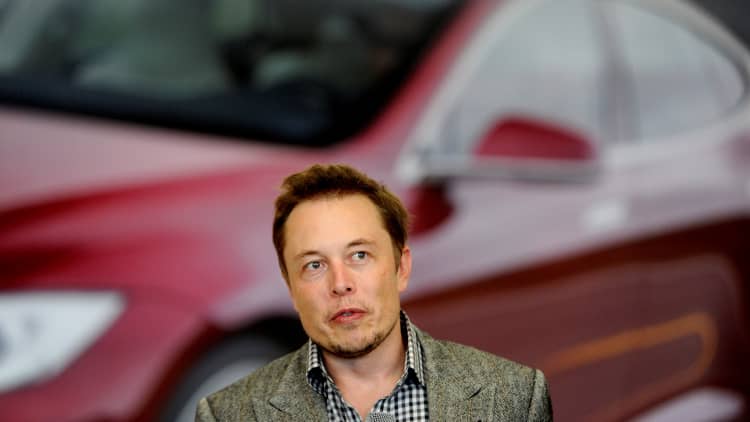If you're thinking of switching to an electric vehicle with a focus on environmental benefits, chances are that you have considered a Tesla.
Here are a few things you should know.
The debut of the Model 3 — which starts at $35,000 — is Tesla's most affordable model. And it has many individuals wondering if they want to convert to gas-free driving. In April, Tesla began offering leases on its Model 3.
For a Tesla model with standard range plus — 240 miles — the purchase price is roughly $39,500 if you pay cash, excluding taxes and fees, according to the company. That is provided you pay $2,500 up front.
That price goes down to as low as $29,450, once the federal tax credit plus six years' of savings on gas are factored in.
If instead you lease, you could pay approximately $399 per month. There is one catch: You will not be able to buy the car at the end of the lease.
IMore from Impact Investing:
MBA students face off on next best impact investing idea
Not just millennials have socially responsible investing in mind
Homeowner avoided 'energy guzzlers' for more efficient options
Going autonomous may be risky
The riskiest part of deciding to drive a Model 3 is whether or not you want to add on the autonomous driving features, said Sam Jaffe, managing director at research firm Cairn ERA.
Tesla's autopilot – including steering and braking features – is included with the car. Its full self-driving capabilities, such as automatic lane changing and parking, can cost an extra $6,000 or so more at the time of purchase.
Because the self-driving equipment — including the necessary computers and sensors — comes already built into the car, consumers may want to wait to activate those advanced features later, even though you may have to pay a bit more, Jaffe noted.
You do want to keep in mind that autonomous driving may never be legally allowed, and those features may not be as safe as they are purported to be, he said.
"You are bringing risk into the equation that is very rare in the car-buying process," Jaffe said.
Charging will cost you
Even though electric vehicles are generally cheaper than gas, you should be prepared for the cost of driving one – particularly if you are not able to charge at home or at work.
"It's really critical that non-EV owners understand the state of charging," Jaffe said. "It's gotten very expensive to publicly charge an electric vehicle."
Tesla offers its own Supercharger stations that contain multiple chargers.
In North America, including Canada and Mexico, there are a total of 1,441 stations with 12,888 Superchargers, according the company's website, which provides a map of those locations.
Car owners are billed either by kilowatt-hour or per minute, based on the station. Charging costs about 26 cents per kilowatt-hour for a Model 3.

Tax benefits have decreased
Tax credits are available for buying an electric vehicle, but for Tesla, those incentives have been reduced.
The existing $7,500 tax credit phases out once an automaker sells 200,000 electric vehicles. Tesla has already crossed that threshold, which means consumers who buy its cars are only eligible for half that amount — $3,750.
Lawmakers have proposed a bill, the Driving America Forward Act, to extend those tax credits for an additional 400,000 vehicles for each automaker.
But for now, Tesla's tax credits are slated to get further reduced in July to $1,875.
Get the right advice
Recent news headlines about Tesla have focused on market relief following its recent $2.7 billion fundraising and questions about its future amid talk of a possible new focus on autonomous driving.
But that speculation should not affect whether or not you want to buy or lease one of the company's cars, experts said.
"Tesla and Elon Musk took any liquidity worries off the table in the near term," said Dan Ives, managing director at Wedbush, of the company's fundraising.
That means consumers don't have to worry that the company is not going to be around in its current form in the next two or three years.
"Our view is, longer term, this is potentially going to be one of the more transformational automobile manufacturers over the next 20 years," Ives said.
The best source for information if you're thinking about leasing or buying one of Tesla's cars? Consumers who are already driving them, according to Jaffe.
"My discussions with owners tend to be very open and honest," Jaffe said. "They will talk about what's wrong with the car, and what's right about it, and their experience."



